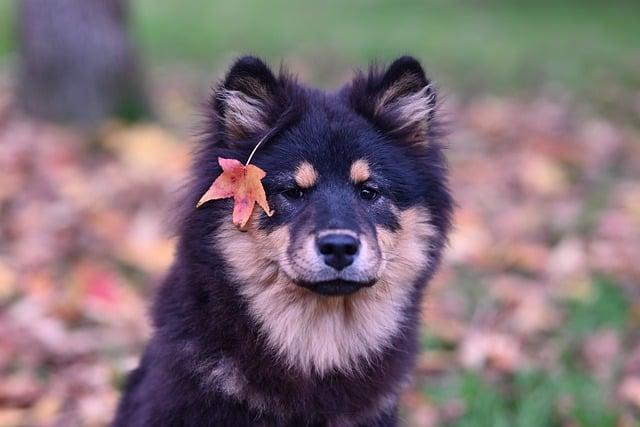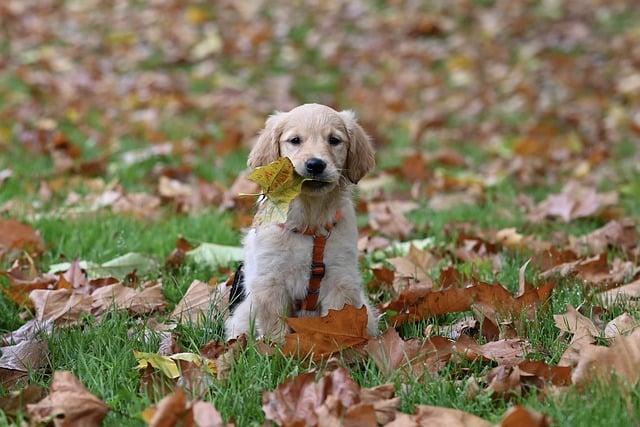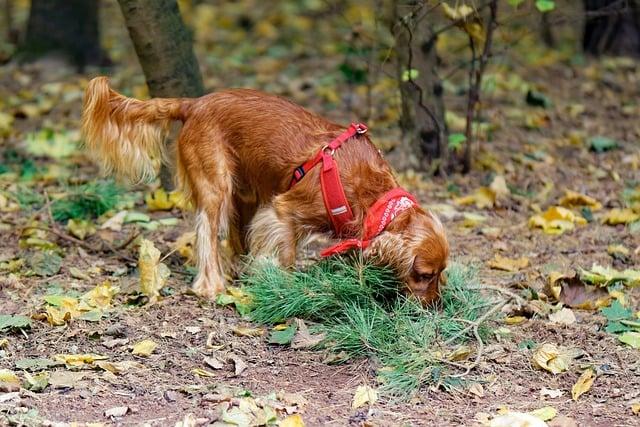Have you ever wondered why your dog can’t resist licking you? Picture this: after a long day, you settle on the couch, and your furry friend jumps up, showering you with affectionate licks. This behavior isn’t just a quirky habit; it’s a form of communication. Dogs lick to express love, seek attention, or even taste your salty skin. Understanding this instinctive behavior can deepen your bond. So, the next time your dog licks you, remember—it’s their way of saying, “I love you!” Embrace it and strengthen your connection.
Contents
- Understanding the Psychological Reasons Behind Your Dogs Licking Behavior
- Identifying Potential Health Issues Linked to Excessive Licking
- Exploring the Role of Anxiety and Stress in Your Dogs Licking Habits
- Effective Strategies to Manage and Redirect Your Dogs Licking Behavior
- Q&A
Understanding the Psychological Reasons Behind Your Dogs Licking Behavior
When your dog licks you obsessively, it can be perplexing and sometimes even annoying. However, this behavior often stems from a variety of psychological factors that reflect your dog’s emotional state and needs. Understanding these reasons can help you respond appropriately and strengthen your bond with your furry friend.
One of the primary reasons dogs engage in licking is **affection**. Dogs are social animals, and licking is a natural way for them to express love and attachment. Just as they would lick their mother or littermates, your dog may be trying to communicate their feelings for you. This behavior can be particularly pronounced in breeds known for their loyalty and companionship, as they thrive on close relationships with their human counterparts.
Another significant factor is **anxiety or stress**. Dogs often lick as a coping mechanism when they feel nervous or overwhelmed. This repetitive action can provide comfort and help them self-soothe in stressful situations. If your dog licks you excessively during thunderstorms, fireworks, or when they are left alone, it may be their way of seeking reassurance and calming themselves down. Recognizing these triggers can help you create a more secure environment for your pet.
Additionally, licking can be a sign of **boredom or excess energy**. Dogs require mental and physical stimulation, and when they don’t receive enough, they may resort to licking as a way to entertain themselves. Engaging your dog in regular exercise, interactive play, and training sessions can significantly reduce this behavior. Providing them with toys that challenge their minds can also redirect their energy into more productive activities, ensuring they remain happy and fulfilled.
Identifying Potential Health Issues Linked to Excessive Licking
Excessive licking in dogs can often be a sign of underlying health issues that require attention. While it may seem like a harmless behavior, it can indicate discomfort or distress that your furry friend is experiencing. Understanding the potential health problems linked to this obsessive licking is crucial for ensuring your dog’s well-being.
One common issue associated with excessive licking is **allergies**. Dogs can be allergic to various substances, including food ingredients, pollen, or even household chemicals. This irritation can lead to persistent licking as they attempt to soothe their itchy skin. If you notice your dog licking specific areas, such as their paws or belly, it may be time to consult your veterinarian for allergy testing and appropriate treatment options.
Another potential concern is **anxiety or stress**. Dogs often lick as a coping mechanism when they feel anxious or overwhelmed. Changes in their environment, such as moving to a new home, the arrival of a new pet, or even loud noises can trigger this behavior. Identifying the root cause of your dog’s anxiety is essential, as it may require behavioral training or environmental adjustments to help them feel more secure.
Additionally, excessive licking can sometimes indicate **pain or discomfort**. Conditions such as arthritis, skin infections, or even dental issues can lead dogs to lick specific areas in an attempt to alleviate their pain. If your dog’s licking is accompanied by other symptoms, such as limping, swelling, or changes in appetite, it’s vital to seek veterinary care promptly. Early intervention can prevent more serious health complications and improve your dog’s quality of life.
Exploring the Role of Anxiety and Stress in Your Dogs Licking Habits
Understanding the underlying reasons for your dog’s obsessive licking can reveal much about their emotional state. One significant factor to consider is anxiety. Dogs, much like humans, can experience stress and anxiety due to various triggers, such as changes in their environment, loud noises, or separation from their owners. When feeling anxious, dogs often resort to repetitive behaviors, including excessive licking, as a coping mechanism. This behavior can provide them with a sense of comfort, helping to alleviate their stress momentarily.
Stress can also manifest in your dog’s licking habits. Situations that may seem trivial to us, such as a new pet in the household or a change in routine, can be overwhelming for your furry friend. In response, they may engage in licking as a way to self-soothe. This behavior not only serves as a distraction from their discomfort but can also be a signal for you to pay attention to their emotional needs. Recognizing these stressors is crucial in addressing the root cause of their licking.
Moreover, it’s essential to differentiate between compulsive licking and normal grooming behavior. While occasional licking is a natural part of a dog’s routine, excessive licking can lead to skin irritations and infections. If your dog’s licking seems to be driven by anxiety or stress, it may be time to explore interventions. Consider implementing strategies such as creating a calm environment, providing engaging toys, or even consulting a professional dog trainer or behaviorist to help manage their anxiety.
Ultimately, addressing the emotional well-being of your dog is paramount. By understanding the connection between anxiety, stress, and their licking habits, you can take proactive steps to improve their quality of life. This not only helps reduce their obsessive licking but also strengthens the bond between you and your pet. Remember, a happy dog is a healthy dog, and your attention to their emotional needs can make all the difference.
Effective Strategies to Manage and Redirect Your Dogs Licking Behavior
Managing and redirecting your dog’s licking behavior requires a combination of understanding, patience, and strategic intervention. First, it’s essential to identify the triggers behind this behavior. Observe when and where your dog tends to lick the most. Is it during moments of excitement, anxiety, or boredom? By pinpointing these triggers, you can begin to address the root cause rather than just the symptom.
Once you have a clearer picture of the underlying reasons for your dog’s licking, consider implementing **positive reinforcement techniques**. Whenever your dog engages in alternative behaviors, such as playing with a toy or resting calmly, reward them with treats or praise. This not only encourages desirable behavior but also helps to create a positive association with activities other than licking. Consistency is key; ensure that all family members are on board with the training approach.
Incorporating **structured playtime** into your dog’s daily routine can significantly reduce excessive licking. Engaging in activities that stimulate both their mind and body can help alleviate boredom and anxiety. Consider activities such as fetch, agility training, or puzzle toys that challenge your dog. These not only provide an outlet for energy but also strengthen the bond between you and your pet, making them less likely to seek comfort through licking.
Lastly, if licking persists despite your best efforts, it may be beneficial to consult with a veterinarian or a professional dog trainer. They can help rule out any underlying medical issues or behavioral disorders that may be contributing to this compulsive behavior. Remember, addressing excessive licking is a journey that requires time and dedication, but with the right strategies in place, you can guide your dog toward healthier habits.
Q&A
-
Why does my dog lick me excessively?
Excessive licking can be a sign of affection. Dogs often lick their owners as a way to show love and bond with them. This behavior is instinctual and can be comforting for both the dog and the owner.
-
Could my dog be anxious or stressed?
Yes, excessive licking can also indicate anxiety or stress. If your dog is feeling insecure or nervous, they may lick you as a self-soothing mechanism. Observing other signs of anxiety can help determine if this is the case.
-
Is my dog trying to communicate something?
Absolutely. Dogs use licking as a form of communication. They may be trying to get your attention, express hunger, or indicate that they need to go outside. Pay attention to the context of the licking to understand their needs better.
-
Should I be concerned about my dog’s licking behavior?
While occasional licking is normal, excessive licking can lead to skin irritation or other health issues. If you notice your dog licking obsessively, it’s advisable to consult a veterinarian to rule out any underlying medical conditions.
understanding your dog’s obsessive licking can enhance your bond and improve their well-being. By recognizing the underlying reasons, you can address their needs effectively. Prioritize their health and happiness—your connection will flourish.

大家好,我是彼得潘,專業的手法身體治療師。我喜歡探索和研究各種主題,並透過與人工智慧的合作分享專業、實用、有趣的文章。我們定期進行人工審核,以確保內容的準確性。如果您發現文章中有任何不準確的地方,請隨時與我們聯繫,我們會及時糾正。您可以透過 [email protected] 與我們聯繫。



